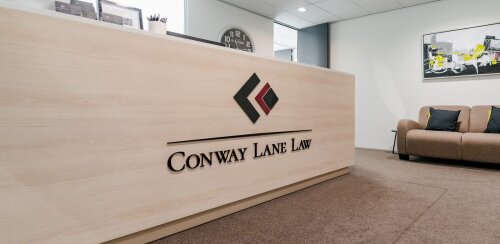Best Gaming Lawyers in Rangiora
Share your needs with us, get contacted by law firms.
Free. Takes 2 min.
List of the best lawyers in Rangiora, New Zealand
1. About Gaming Law in Rangiora, New Zealand
Gaming law in Rangiora sits within New Zealand’s national framework, but local considerations matter for venues and players. The Gambling Act 2003 is the cornerstone statute that regulates gambling activities and licensing across the country. The Department of Internal Affairs administers licensing, compliance, and enforcement under that Act. Local councils, including the Waimakariri District Council which covers Rangiora, implement council-specific permissions and monitor venues for compliance.
In Rangiora, business operators must navigate both national rules and local planning requirements. This means you may need a national gambling license, plus local consents or permits before opening or expanding a gaming venue. Understanding how these layers interact helps avoid penalties and delays.
“The Gambling Act 2003 provides the regulatory framework for gambling in New Zealand and aims to control gambling harm.”
Sources: Department of Internal Affairs - Gambling, and NZ Legislation websites provide the statutory framework and guidance for licensees and applicants.
2. Why You May Need a Lawyer
Opening or operating a gaming venue in Rangiora can involve complex licensing and compliance tasks. A solicitor or regulatory attorney helps ensure your application meets every statutory requirement and local rule. This reduces the risk of delays or refusal due to incomplete information.
- Applying for a Class 4 gaming venue license for a Canterbury pub or club in Rangiora may require careful due diligence, corporate structure checks, and supporting documents. A lawyer helps prepare the application, coordinates with the Department of Internal Affairs and the local council, and navigates potential conditions.
- Responding to enforcement actions if a venue receives breach notices or compliance orders, a legal professional can advise on the evidence, rectify issues quickly, and represent you in negotiations or hearings.
- Challenging licensing decisions if a license is refused or conditions are imposed that you deem unreasonable, an attorney can prepare an appeal or review. This often involves technical interpretations of the Gambling Act and local policy.
- Drafting harm minimization and policy frameworks for staff training, self-exclusion, responsible gambling, and record keeping to meet regulatory expectations and protect patrons.
- Managing disputes with suppliers, landlords, or other stakeholders about venue operations, hours, advertising, or contractual obligations related to gaming activities.
- Compliance audits and ongoing governance to stay current with changes in legislation, regulations, and local requirements that affect gaming venues in Rangiora.
3. Local Laws Overview
The following laws, regulations, and statutes govern gaming activities in Rangiora, with notes on how they apply locally. They create the framework for licensing, operation, and enforcement in Canterbury communities.
- Gambling Act 2003 - The primary statute regulating gambling activities, licensing, and enforcement across New Zealand. It sets licensing criteria, permit conditions, and standards for premises hosting gambling machines.
- Gambling Regulations 2004 - Regulations that accompany the Gambling Act 2003, detailing licensing processes, fees, and specific procedural rules for approvals and monitoring.
- Local Government Act 2002 - Provides local authorities with powers to regulate land use, consent requirements, and compliance monitoring that can affect where gaming venues operate and how they are managed within districts like Waimakariri.
- Waimakariri District Plan (local resource management planning) - Local planning rules that may influence venue siting, signage, hours of operation, and other governance aspects specific to Rangiora.
Recent changes and context: Amendments to strengthen harm minimization and transparency have shaped how licenses conditions are drafted and enforced. For authoritative details, see the NZ legislation site and the Department of Internal Affairs guidance.
“Gambling regulation across New Zealand focuses on license integrity, responsible gambling, and harm prevention.”
Sources: Department of Internal Affairs, Legislation New Zealand, Waimakariri District Council
4. Frequently Asked Questions
Below are common questions about gaming law in Rangiora, answered with practical NZ-specific guidance. Each question starts with a verb and stays within a concise length for quick reference.
What is the purpose of the Gambling Act 2003?
The Act regulates gambling activities, licenses venues, and provides protection against harm. It aims to balance economic benefits with responsible gambling measures.
How do I apply for a gaming venue license in Rangiora?
You generally submit an application to the Department of Internal Affairs, with local council input as required. A solicitor can help assemble business, ownership, and compliance documents.
When must a license be renewed or reviewed?
Licensing periods and renewal timelines vary by license type. Expect multi-month processing, with ongoing compliance checks during the license term.
Where can I find local requirements for Rangiora venues?
Check with the Waimakariri District Council for district plan provisions, consent requirements, and any site specific conditions affecting gaming venues.
Why are there restrictions on advertising gambling?
Restrictions aim to reduce exposure to vulnerable groups and deter problematic gambling. Advertising rules are defined in the Gambling Act and regulations.
Can I appeal a licensing decision in Rangiora?
Yes. If a license is refused or conditions are unacceptable, you can typically appeal through the appropriate regulatory or tribunal processes with legal support.
Should I hire a gaming lawyer for compliance audits?
Yes. A solicitor with gaming law experience helps prepare for audits, align policies with current rules, and implement effective harm minimization measures.
Do I need to disclose financial information for licensing?
Licensing often requires corporate and financial disclosures, ownership structures, and proof of suitability of key persons involved in the venue.
How much does it cost to license a gaming venue?
Costs include application fees, license fees, and ongoing compliance costs. Exact amounts depend on license type and venue specifics.
How long does the licensing process typically take?
Processing times vary by license and complexity. Realistically, expect 2-4 months for standard cases, longer for contested matters.
Is online gambling regulated in New Zealand?
Yes. Online gambling is regulated under the same Gambling Act framework, with restrictions on operators and consumer protections applying to online activities.
What is self-exclusion and how does it work?
Self-exclusion allows individuals to ban themselves from a venue or gaming machines for a defined period. Venues must maintain exclusion lists and follow procedures.
5. Additional Resources
These official resources provide current guidance, regulatory context, and official procedures relevant to Gaming in Rangiora.
- Department of Internal Affairs (DIA) - Regulator responsible for licensing, compliance, and enforcement of gambling activities in NZ. https://www.dia.govt.nz/
- Legislation New Zealand - Official repository for the Gambling Act 2003, its regulations, and amendments. https://legislation.govt.nz/
- Waimakariri District Council - Local council for Rangiora, providing district planning rules, licensing requirements, and compliance information. https://www.waimakariri.govt.nz/
6. Next Steps
- Define your goal clearly - decide if you need a new license, renewal, or compliance review. Set a target date for decision or renewal.
- Gather and organize documents - corporate structure, ownership details, financial statements, site plans, and staff policies. Prepare evidence of suitability and governance.
- Identify a Rangiora-based gaming lawyer with experience in Gambling Act matters and local council processes. Request a scope and cost estimate in writing.
- Arrange an initial consultation to discuss your case, timelines, and potential strategy. Bring all relevant documents and questions.
- Consult with DIA and the local council for pre-application guidance and to confirm any local requirements or conditions.
- Prepare and lodge the license application with comprehensive support materials. Allow for a 2-4 month processing window, plus potential queries.
- Respond promptly to any requests or objections during the review. If refused, evaluate appeal options with your solicitor.
- Implement ongoing compliance measures including staff training, self-exclusion processes, and regular audits to maintain good standing.
Lawzana helps you find the best lawyers and law firms in Rangiora through a curated and pre-screened list of qualified legal professionals. Our platform offers rankings and detailed profiles of attorneys and law firms, allowing you to compare based on practice areas, including Gaming, experience, and client feedback.
Each profile includes a description of the firm's areas of practice, client reviews, team members and partners, year of establishment, spoken languages, office locations, contact information, social media presence, and any published articles or resources. Most firms on our platform speak English and are experienced in both local and international legal matters.
Get a quote from top-rated law firms in Rangiora, New Zealand — quickly, securely, and without unnecessary hassle.
Disclaimer:
The information provided on this page is for general informational purposes only and does not constitute legal advice. While we strive to ensure the accuracy and relevance of the content, legal information may change over time, and interpretations of the law can vary. You should always consult with a qualified legal professional for advice specific to your situation.
We disclaim all liability for actions taken or not taken based on the content of this page. If you believe any information is incorrect or outdated, please contact us, and we will review and update it where appropriate.









